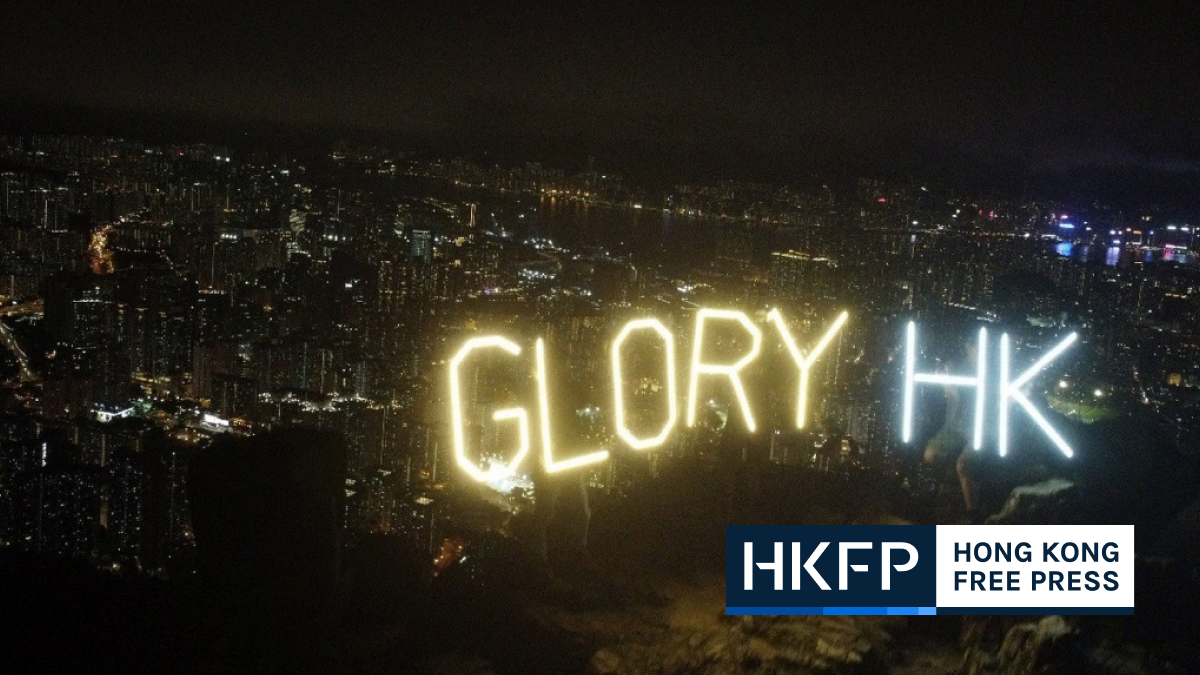Hong Kong police have arrested almost 100 people under the Beijing-imposed national security law since its enactment last June 30, police chief Chris Tang said on Tuesday, saying the law had helped to restore order but warning of possible “lone wolf attacks.”
The police commissioner was reporting crime statistics to the Legislative Council (LegCo) Panel on Security. He later repeated the figures in a separate press conference on last year’s law and order situation in Hong Kong.
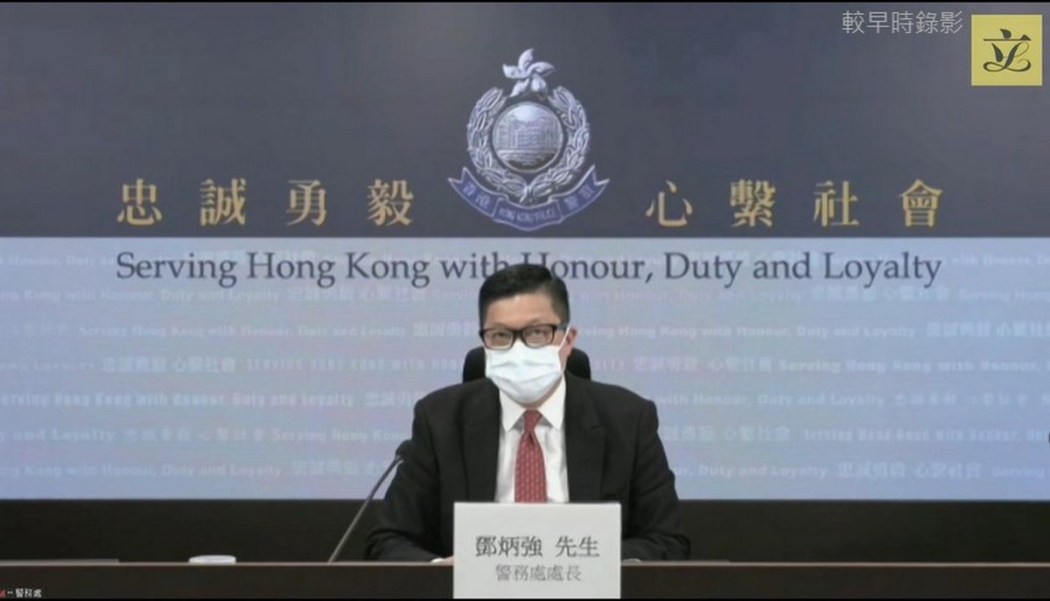
Tang said police apprehended 97 people for alleged secession, subversion, collusion with foreign forces or terrorist acts and eight of them had so far been charged under the law.
Among those arrested, some suspects face charges such as money laundering, fraud and publishing seditious words under separate legislation.
Asked why only eight had been charged, Tang said it was too early to say the prosecution rate was low. “National security offences are very serious offences. We need to investigate them thoroughly and gather evidence. We need more time to process all those cases.”
The police chief said officers had “resolutely and proactively” collected evidence to arrest and charge individuals suspected of breaching the security law. He said social order had been gradually restored, but the force would continue combating unlawful activities by adopting an intelligence-driven approach in investigations .
“Police will seriously prevent illegal activities from reviving. We particularly have to stop radical individuals from launching lone wolf attacks, such as the hurling of petrol bombs at the Police Sports and Recreational Club last December,” the police chief said.
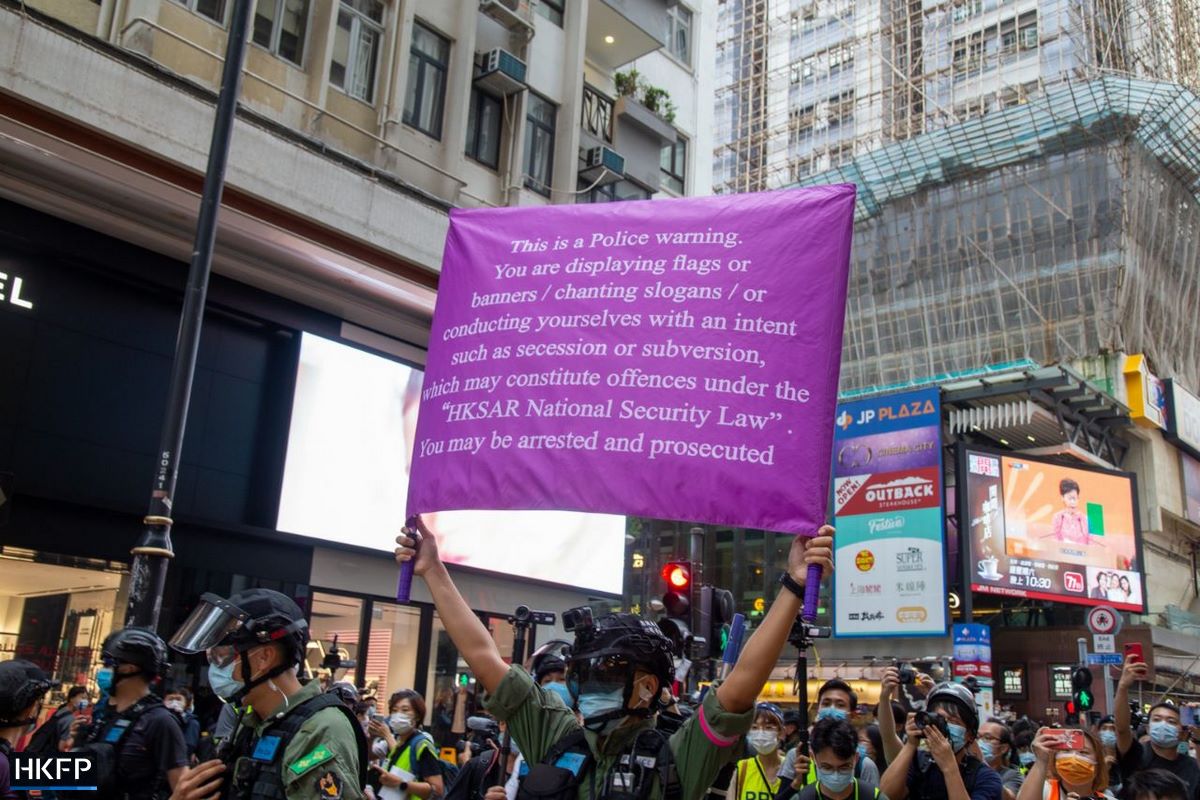
Last month, 55 pro-democracy figures including former lawmakers, district councillors and activists were arrested for organising or taking part in an unofficial primary election for the now-postponed 2020 LegCo elections.
Authorities said efforts by pan-democrats to win a majority in LegCo, with the aim of blocking the budget and forcing the chief executive to quit, amounted to subversion.
Another high-profile arrestee under the controversial security law was media tycoon Jimmy Lai, who is facing trial for allegedly colluding with foreign forces. The Apple Daily founder stands accused of using Twitter and his pro-democracy tabloid to “request” overseas powers to impose sanctions on local and Chinese authorities.
The 73-year-old is currently in detention pending an appeal against his bail. The Court of Final Appeal heard the case on Monday and is set to hand down a written judgement at a later date.
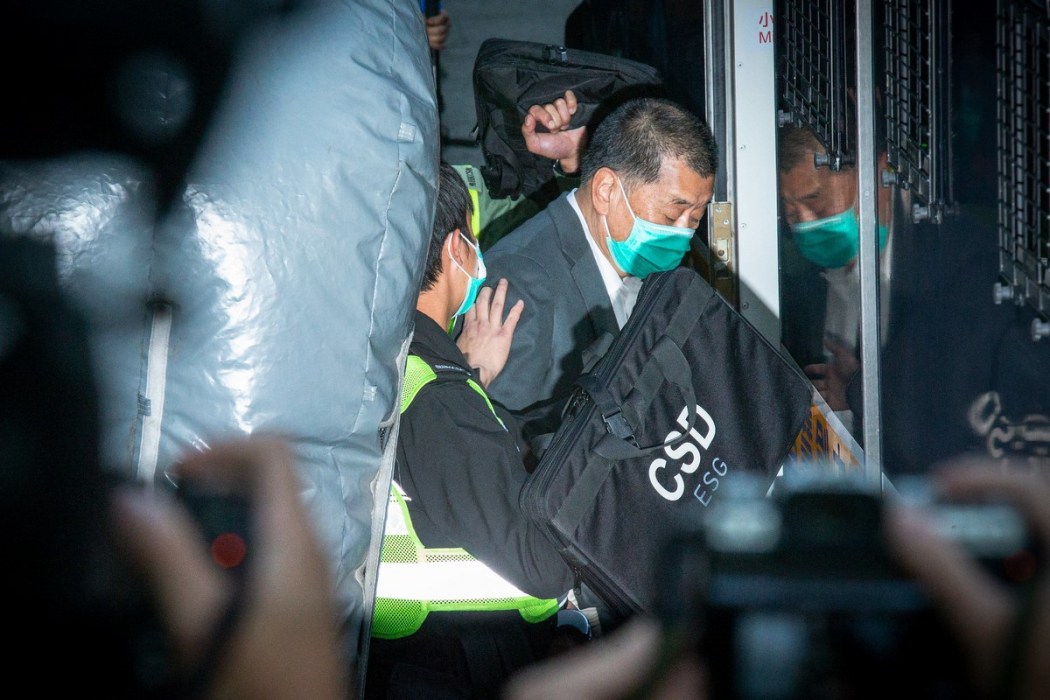
Tang told lawmakers that police had arrested 10,200 people – 40 per cent of them students – in relation to the 2019 anti-extradition bill protests. Almost 2,450 had been prosecuted and judicial proceedings had been completed in more than 940 of these cases.
Tang specifically mentioned the imprisonment of prominent democracy campaigners Joshua Wong, Ivan Lam and Agnes Chow over the siege of police headquarters in June 2019. He also pointed to the case of three protesters jailed for assaulting a Chinese state tabloid reporter in August 2019.
The trio were jailed for up to five and a half years for rioting – the heaviest penalties meted out so far for protest-related cases.
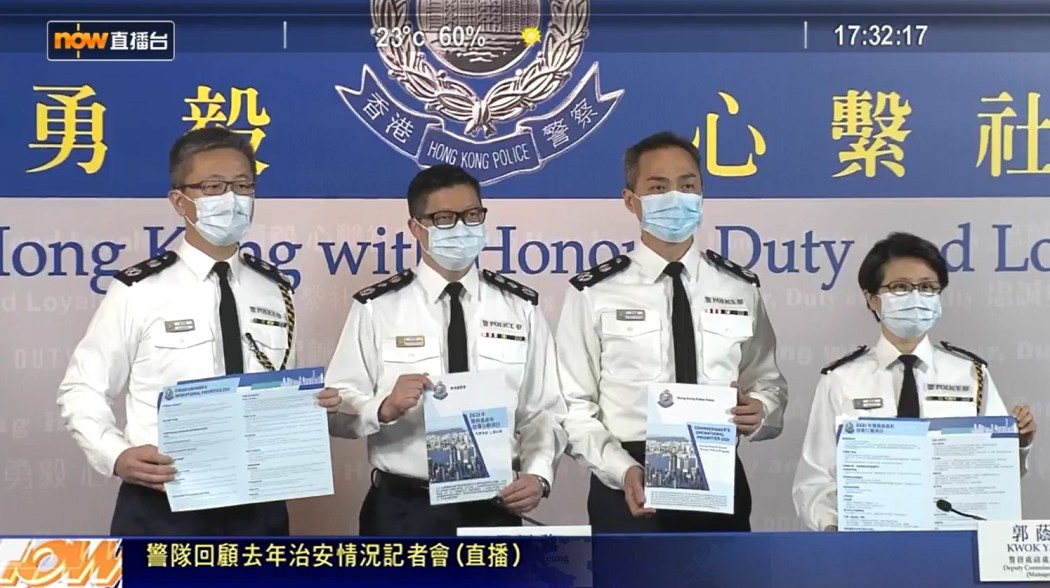
Tang rejected criticism that police were spreading “white terror” by making arrests under the security legislation without pressing charges. He dismissed the term as an “excuse” used by the arrestees to evade criminal liability.
“This term has been abused by a lot of people. When they are being arrested, they will make an excuse that this is a white terror… they try to make this excuse to make themselves feel a little bit better,” he said.
Support HKFP | Policies & Ethics | Error/typo? | Contact Us | Newsletter | Transparency & Annual Report | Apps
Help safeguard press freedom & keep HKFP free for all readers by supporting our team
























